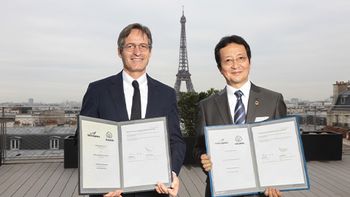
- Pharmaceutical Commerce - May/June 2010
The doctor is in, but not for pharma sales reps
Study finds doctors becoming even less accessible when it comes to meeting with drug reps
The number of physicians willing to meet with pharmaceutical representatives has fallen again this year, according to the latest AccessMonitor report, a study conducted by consulting firm ZS Associates (Evanston, IL) that examines how often physicians and other prescribers will meet with pharmaceutical sales reps.
More than 20 percent of the physicians deemed "rep-accessible" in a late 2009 AccessMonitor study have fallen to "rep-neutral" status, and 11 percent of those previously considered "rep-neutral" are now rated as "rep-inaccessible." Additionally, the study found that the physicians considered "rep-accessible" have become more discriminating in regards to who they will meet with, and the number of "rep-inaccessible" prescribers rose from 6 percent to 9 percent.
To deal with the rapidly falling number of physicians who will meet with their reps, the pharmaceutical industry is adapting its sales and marketing strategies.
"Sales management should accept that you can't reach these doctors simply by telling the reps to 'try harder,'" says Chris Wright, principal and leader of the pharmaceutical practice at ZS Associates. "Instead, managers must modify the call plan to connect best with each individual physician."
Many progressive pharmaceutical companies have responded to the increasing difficulty in gaining access to physicians by adopting a new sales strategy called "differential resourcing," which matches sales resources to local conditions and is more versatile than the traditional "one-size-fits-all" sales models previously used.
"While [differential resourcing] requires a rather complex change to existing sales models, companies who adopted this approach quickly reduced their sales force-related costs by as much as 20 percent," says Wright. "Collectively, these companies now save themselves more then $500 million a year... In our view, implementing this practice across the board can save sales forces in the U.S. another $2 billion annually—all while giving individual representatives much-needed flexibility."
The AccessMonitor study tracks sales rep-related interactions of more than 500,000 physicians, nurse practitioners and other pharmaceutical prescribers nationwide, and monitors the planned and completed sales calls of more than 41,000 pharmaceutical reps.
Articles in this issue
over 15 years ago
Smoothing the Path to Drug Safetyover 15 years ago
Pharma, FDA Wrestle with Social Media Toolsover 15 years ago
Defending Fair Market Value (FMV) Assessmentsover 15 years ago
The Time Is Right to Reform Your Approach to Managed Careover 15 years ago
Deloitte 2010 Survey of Health Care Consumersover 15 years ago
Surprise! Employment Is on the Rise--in Contract Salesover 15 years ago
The Drive to Develop New Commercial Modelsover 15 years ago
Medical-Claims Database Analysis of Off-Label PrescribingNewsletter
Stay ahead in the life sciences industry with Pharmaceutical Commerce, the latest news, trends, and strategies in drug distribution, commercialization, and market access.




